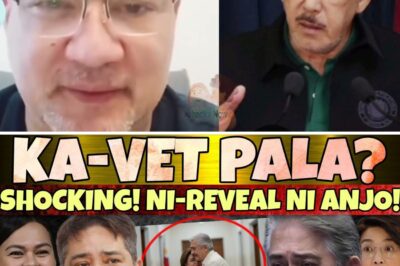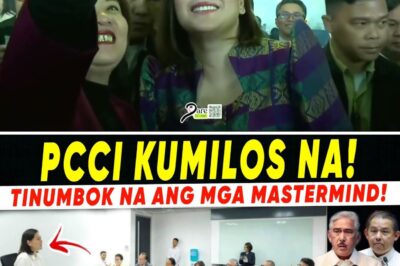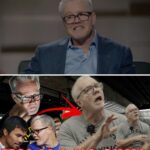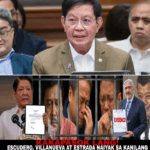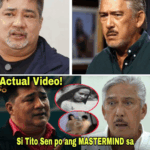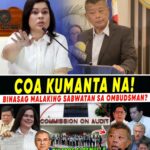
In the brutal, unforgiving world of professional boxing, where success is measured by knockouts and spectacle, the true measure of a man’s greatness often lies not in his own victories, but in the enduring strength he imparts to others. The story of Freddie Roach, the legendary American trainer, is not merely a tale of strategy and success; it is a profound, emotionally charged narrative of human sacrifice, unbreakable commitment, and the quiet, daily heroism required to fight a devastating neurological battle that started right inside the ring he loves.
At 65 years old, Roach remains one of the most respected—and perhaps, most beloved—figures in the sport. His career has been a masterful symphony of triumphs, punctuated by personal tragedies and professional heartbreaks. From molding a relatively unknown Filipino brawler into a global, eight-division phenomenon to conquering his own physical limitations with sheer willpower, Roach has proven that the mind, honed by decades of discipline, is the ultimate weapon against the body’s eventual betrayal. His life provides a vivid, inspiring blueprint for surviving the blows that come both inside and outside the ropes, leaving a legacy that is, in its own way, far more compelling than any championship belt.
The Blueprint of a Champion: From Boston Boxer to Hollywood Guru
Freddie Roach was born on March 5, 1960, in Dedham, Massachusetts, and was practically destined for the ring. Boxing ran deep in his lineage: his father, Paul Roach, was a former New England Featherweight Champion, and his mother, Barb, made history as the first female professional boxing judge in Massachusetts. From an early age, Roach absorbed the essential qualities of the sport: diligence, speed, and unwavering fortitude.
He was a prolific amateur, estimating that he had over 150 fights before turning professional in 1978. As a professional, he compiled a respectable record of 40 wins and 13 losses across the Super Bantamweight and Lightweight divisions. Yet, like many talented fighters, he never achieved superstar status. He faced the hard truth that not every talented puncher becomes a star. However, this failure proved to be the pivotal turning point for his enduring greatness.
In 1986, Roach traded in his gloves for a clipboard, starting as an assistant trainer under the tutelage of the legendary Eddie Futch. This was the first major step in transferring his immense ring experience into the sophisticated art of coaching. Soon after, he established his own sanctuary in Hollywood, Los Angeles—the Wild Card Boxing Club.
The Wild Card is not an ordinary gym; it is a “dampana ng maraming kampeon” (a temple of champions) and a powerful symbol of accessibility and meritocracy. In an industry often guarded by exclusivity, Roach opened his doors to anyone willing to put in the work, charging as little as five dollars for a day’s training. It was here, on the worn canvas and among the heavy bags, that Roach forged his element of discipline, technique, and a rigorous focus on fundamentals that would revolutionize his coaching philosophy.
The Golden Age: Forging the Legend of Manny Pacquiao

The name Freddie Roach became truly immortal when it was inextricably linked with Manny Pacquiao. Before their partnership, Pacquiao was known in the Philippines but was largely considered a powerful, fast, but ultimately undisciplined “brawler” in the global arena.
That changed forever on June 23, 2001, when Pacquiao faced Lelo Ledwaba for the IBF Super Bantamweight title. It marked the start of their epic, game-changing collaboration. Under Roach’s guidance, Pacquiao evolved dramatically. He learned to move beyond relying solely on speed and brute power. Roach instilled a new regimen focusing on footwork, balanced technique, and a disciplined strategic approach. The results were immediate and historic: Pacquiao began his continuous ascent, becoming the first-ever eight-division world champion in boxing history.
The Roach-Pacquiao tandem stood the test of time and dominated the biggest fights of the era. Their success was a testament not only to Pacquiao’s otherworldly talent but to Roach’s dedication to detail, his ability to build a fighter’s fight IQ, and his capacity to serve as more than just a coach. To his athletes, Roach was a mentor, a counselor, and, at times, a father figure. He believed that the fight was won not just in the ring, but in the gym, in the boxer’s psyche, and in the preparation for every conceivable situation.
Roach’s reputation, however, extended far beyond the Filipino phenomenon. He has trained and guided dozens of other elite talents, including multi-division world champions like Miguel Cotto, three-time world champion James Toney, and even Oscar De La Hoya during certain phases of his career. By his own count, he has trained more than 40 world champions—a staggering figure that cements his place as one of the most successful trainers in the history of the sport.
The Silent Battle: Confronting Parkinson’s in the Corner
In the midst of his unparalleled success, Roach was forced to face a personal challenge that tragically mirrored the brutality of his own career: a neurological condition. Roach was diagnosed with stintomas, a term often used in connection with the symptoms of Parkinson’s disease, a progressive disorder of the nervous system.
The condition, which causes noticeable physical tremors and affects movement, is widely believed to be trauma-induced, linked to the many punches Roach absorbed during his active years as a boxer. It is the ultimate irony: the sport that gave him his greatest purpose is now gradually reclaiming control of his body.
In candid moments, Roach has opened up about the emotional toll of the disease, acknowledging the daily struggle with a heartbreaking question: “It does get frustrating, you know, like, you know, why me? Like, what, what did I do?” He admits he would rather not have the condition, but his response has been pure, unflinching fortitude: “I stuck with it, and I deal with it every day.”
The Wild Card Boxing Club is therefore not only a gym but a daily battleground where Roach proves his resilience. Visitors and fighters often observe his physical struggles—the shaking, the effort required to remain standing and hold the mitts—but these challenges have never caused him to retreat. Instead, he has accepted the condition, integrating it into his work as a trainer and gym owner. His mental acuity and strategic brilliance remain undimmed, forcing the admiration of everyone around him. His persistence in coaching, despite the physical agony, has become a powerful, living testament to the discipline and mental toughness he preaches—a legacy of enduring strength that inspires generations of fighters to confront their own personal demons.
The Unkindest Cut: The Painful Fracture of a Legendary Partnership
Even the most enduring professional relationships are susceptible to rupture, and the partnership between Roach and Pacquiao was no exception. Despite their shared history and countless moments of triumph, the relationship faced internal tensions that eventually led to a heartbreaking split.
In April 2018, Roach confirmed that their nearly two-decade-long relationship had come to an end, just before Pacquiao’s fight against Lucas Matthysse. While the decision was Pacquiao’s, the manner of the breakup inflicted a deep emotional wound on the veteran trainer. Roach candidly expressed the pain of the unceremonious separation, stating, “I wouldn’t trade any of it, but it was painful that I was not contacted directly.” This feeling of being sidelined after such immense shared success demonstrated the fragile balance between a professional partnership and a profoundly personal, almost father-son bond.
The issue was not simply about physical distance but about communication, respect, and the need for clear understanding as Pacquiao’s career matured. Although the rift seemed complete, the two boxing titans eventually reconciled, with reports of them talking and planning to work together again in November 2018. Pacquiao himself insisted that “Freddie never left Team Pacquiao,” and that he would still be in his corner for certain fights.
However, the dynamic was permanently altered. Roach, ever the man of integrity, made it clear that he would not initiate any new work arrangements unless he spoke directly with Pacquiao, emphasizing the importance of communication in their future partnership. The temporary fracture served as a poignant reminder that in the high-stakes world of combat sports, personal relationships can be as brutal and complex as the fighting itself.
The Unbroken Vow: A New Chapter in the Ring
In the present day, despite the challenge of his neurological condition, Freddie Roach remains fiercely active and essential to the boxing world. He continues to operate the Wild Card Boxing Club in Hollywood, which remains a bustling hub for both professional fighters and aspiring amateurs. He dedicates his time to training a diverse roster of athletes, nurturing new talent, and constantly imparting his knowledge, focusing not just on technical aspects but on the mindset and ethics of being a true boxer.
His life provides an invaluable lesson in perseverance and adaptation, reminding the next generation that the path to success is paved with hard work and resilience, often against insurmountable odds.
In a beautiful testament to his lifelong devotion to the sport and the place that gave him his greatest triumphs, Roach began a new personal chapter in the most unconventional, yet perfectly symbolic, setting. On June 17, 2023, Freddie Roach married his long-time partner, Mary Spy, in a simple, heartfelt ceremony held inside the boxing ring at the Wild Card Boxing Club.
This simple act was a profound symbol. The ring, which has been the stage for his greatest professional achievements and the location of his daily struggle against Parkinson’s, became the altar for his most sacred personal commitment. It reaffirmed his unbroken vow: a life lived entirely for boxing, culminating in a legacy defined not by his own lack of a championship, but by the countless champions he molded, the principles he upheld, and the quiet, extraordinary strength he continues to display every single day in the corner. The world watches, inspired by the man who proves that the best fights are the ones you win for the love of the game.
News
COA Clears OVP in Landslide Rebuke to Political Sabotage as P39 Billion Flood Fund Scandal Exposes ‘Selective Justice’ at the Highest Levels
The Philippines finds itself at a chilling intersection of political vendetta, financial paradox, and human tragedy. In the wake of…
Ang Babala ni Gina na Binalewala: Ang Koneksyon ng Pagkatanggal Niya sa Nakakakilabot na Pagkakalbo ng Sierra Madrev
Sa bawat hagupit ng bagyo, sa bawat pagbaha na lumulunod sa mga bayan sa Cagayan at Isabela, sa bawat pagguho…
Huli sa Akto: Ang Trahedya ng Misis at Foreman na Nauwi sa Isang Brutal na Krimen
Sa tahimik na mundo ng isang ordinaryong komunidad, ang pinakamalaking halaga ay inilalagak sa tiwala. Tiwala sa loob ng tahanan,…
The Henyo Speaks: Joey de Leon Breaks Silence, Unleashes Final Bombshell on Anjo Yllana’s Eat Bulaga! Scandal
In the brutal, agonizing, and deeply personal civil war that has consumed the Eat Bulaga! institution, the public has heard…
The Bombshell After the Surrender: Anjo Yllana Reignites War, Shocks Tito Sotto with New Matchmaking Exposé
In the brutal, high-stakes theater of Philippine showbiz, the public has just witnessed what may be the most vicious and…
Yari Na!: VP Sara and PCCI Pinpoint Sotto Jr. and Tamba as Masterminds
In the sprawling, chaotic, and often-shadowy world of Philippine politics, the UniTeam was, for a brief, shining moment, the invincible…
End of content
No more pages to load






